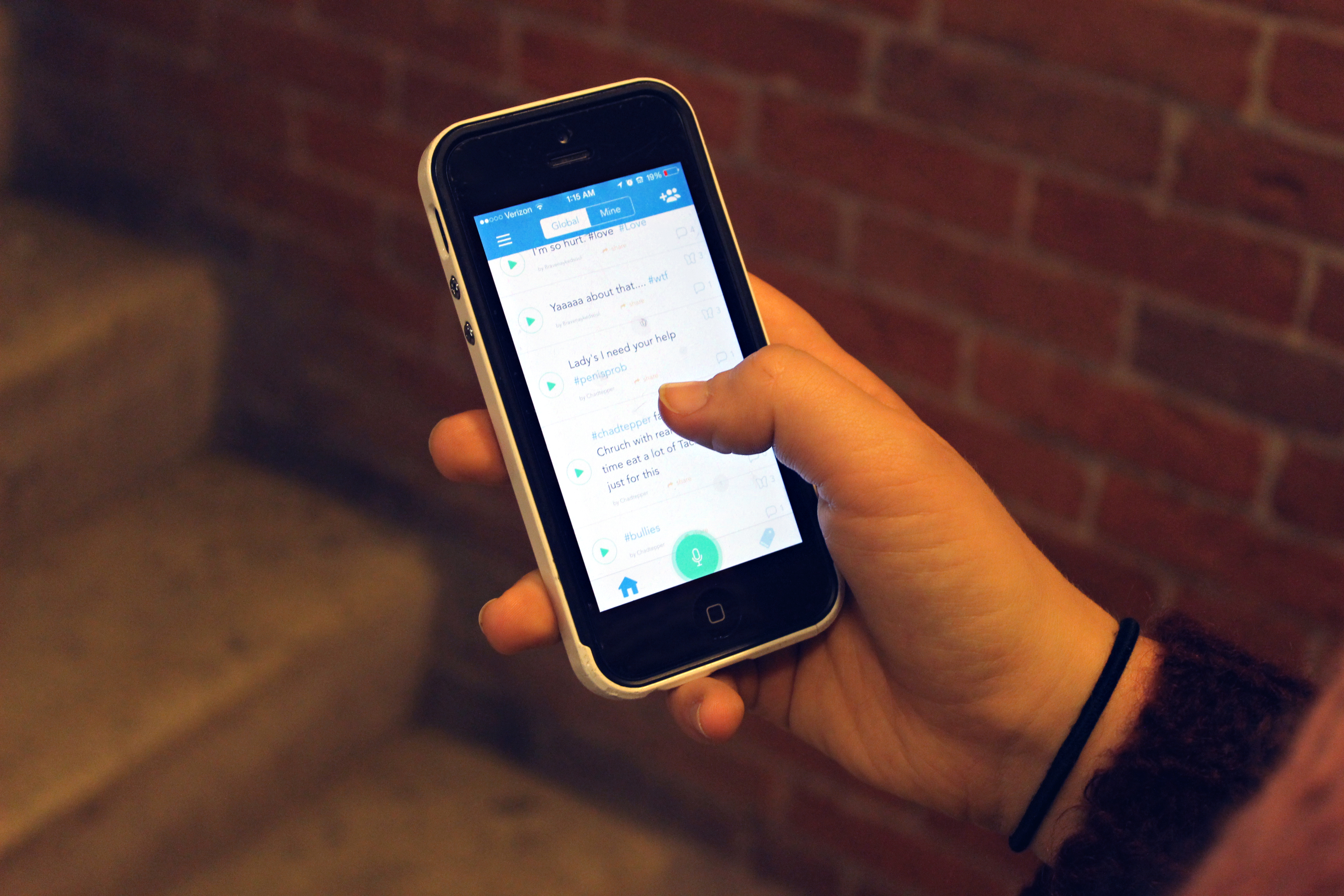
A nationwide social media campaign against sexual assault has drawn significant participation from Yale students relative to the participation of other universities.
The 100 Voices Strong campaign, which began in October, invited college students to record their views on sexual assault as audio messages and to anonymously post these online using an iPhone application called “Flyy.” The campaign, which was organized by Flyy staff in conjunction with college students across the country, yielded messages from students at over 100 colleges and universities in the United States, according to Serena Pham, one of the campaign’s organizers and a student at the University of San Francisco.
Jared Wolens, one of the principal organizers of 100 Voices Strong and a senior at Stanford University, said that the campaign was created to encourage survivors and opponents of sexual abuse to publicly voice their individual feelings on the subject.
Wolens described the concept of recording one’s feelings and anonymously sharing them with the world as a personal and powerful experience. He added that the organizers felt that the anonymity of messages uploaded by the application would encourage participation from students who lack the encouragement of others to speak up in person.
“[The campaign] was a way to give people a voice but maintain anonymity and not feel the need to associate identity with oneself,” Wolens said. He added that organizers wished to break down the “herd mentality” of speaking out about sexual assault — the feeling that one can only share their experiences of assault when others do the same.
He added that the organizers of 100 Voices Strong decided to primarily target the colleges and universities in the U.S. that were under federal investigation for sexual assault, and began to contact student activists and publications at these campuses to make them aware of the campaign.
Wolens said Yale students were among the most participative in the campaign and that the newly-formed Yale student group United Against Sexual Assault Yale was particularly helpful in raising awareness of 100 Voices Strong on campus.
He added that the messages left on the Flyy application by Yale students were often more thoughtful than those from students at other universities. According to Wolens, while posts at many universities carried a sense of individual immediacy, the posts of Yale students focused on the bigger picture of sexual assault and its prevention.
“A lot of Yale students would preface their stories with a piece of thought,” Wolens said. “Yale students were more concerned with helping to spread awareness, as opposed to other schools where [the messages were] more personal therapy.”
Helen Price ’18, co-founder of USAY, said that the organizers of 100 Voices Strong asked USAY to be its representative organization at Yale. She was positive about the way in which the campaign encouraged empathy with survivors of sexual assault without forcing students to do so publicly.
“Given that Flyy is anonymous, we don’t know how many Yale students participated, but we have been very happy with the awareness and response on campus,” Price wrote in an email to the News.
Anthony D’Ambrosio ’18, co-founder of USAY, said that, to his knowledge, all messages published by Yale students as part of 100 Voices Strong were posted by students affiliated with USAY. He added that the group intends to keep in touch with the staff of the Flyy application and the organizers of 100 Voices Strong with the intent of possible collaboration on future projects.
“We plan to publish all of the messages that USAY participants posted [as part of 100 Voices Strong] when our Facebook page goes live next week,” D’Ambrosio said. “Look at what members of the Yale community want to verbalize … and want to share.”
When asked about the effect on 100 Voices Strong of Flyy’s relative obscurity in comparison to other social media platforms, Pham acknowledged that while the campaign’s use of the application restricted its overall reach, its anonymity made the messages more personal and empowering.
“[Flyy allows you] to talk about feelings and opinions you might not even want to talk to your friends about,” Pham said. “It gives more of an anonymous and personable feel because you can change your voice if you need to.”
Pham said that the application’s facility to anonymously comment on anonymous posts makes it communicative in spite of its anonymity. She added that the campaign brings to the forefront an issue that, although very serious, is not widely discussed across the country.
The Flyy application is published by the company Voice Urself, LLC.







